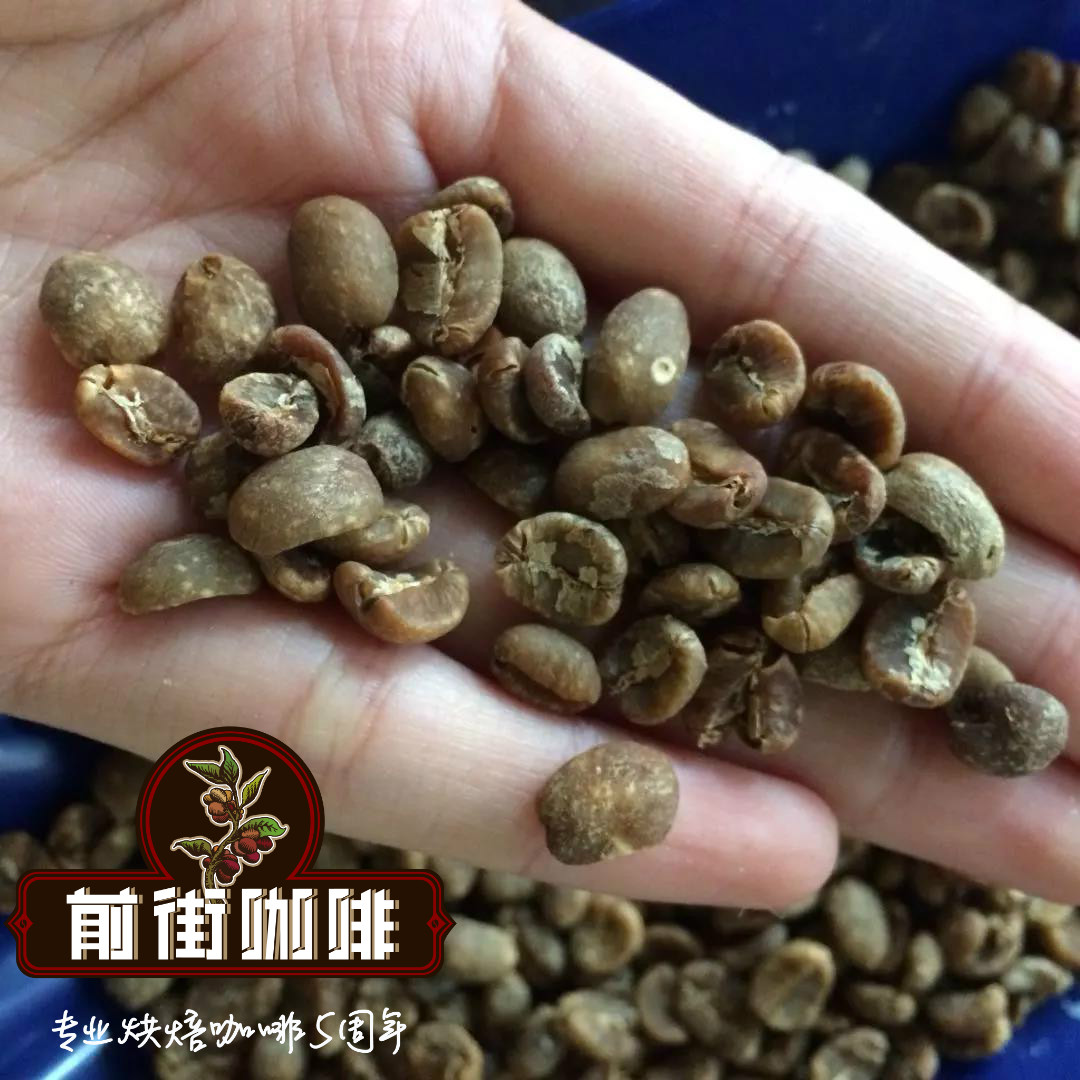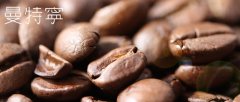Is Manning Coffee Black Coffee? Indonesian Manning Coffee Origin Story characteristics of Mantenin Coffee beans

Professional coffee knowledge exchange more coffee bean information please follow the coffee workshop (Wechat official account cafe_style)
Sumatra-Gayo manning (or Gayo manning) Sumatra Lake Tawar in the world or Indonesia called Gayo Mandheling, Gayo Arabica, Lake Tawar or Takengon Mandheling, actually refers to the beans from the same producing area, and some people call it Lvbao manning.
This bean producing area is located in the Gayo mountain area of Aceh province, also known as Gayo Mantenin, at the end of North Sumatra. The main distribution center of coffee beans is located in Takengon City, west of Laut Tawar Lake in Aceh County. This area is mostly planted by small farmers. Coffee is cultivated by organic cultivation with traditional shade and no pesticide application. Coffee in mountainous areas can only pick ripe red cherries by hand.
Indonesia is the largest archipelago country in the world. Arabica coffee was introduced and planted during the Dutch colonial period in the 18th century, until it became the top five coffee producing country in the world in modern times. the main producing areas are located in Sumatra, Java and Sulawesi. The northern part of Sumatra is relatively high above sea level, and North Sumatra, where Lake Tawa is located, is located in North Sumatra (Lindong is located in this province). There are two major Arabica coffee producing areas.
Lake Tawa is located in the Gayo mountains in the north of Aceh province in Sumatra, across Indonesia on both sides of the equator, the humid tropical rain forest climate is rich in rainfall, and the fertile volcanic soil brings rich nutrients to coffee, but due to the remote and inconvenient transportation, coffee was not planted until 1924, mostly with traditional shade and no pesticide cultivation.
The local climate is humid, and the shelled beans are initially washed and fermented, and after one or two days of exposure, the moisture content of raw beans is still 30% and 50%, that is, peeling off the seed shell before continuing drying, in order to shorten the drying time of raw beans, about 2 days of drying time, the moisture content of raw coffee beans can be reduced to 12%.
This unique semi-washing method in Indonesia is called Giling Basah by locals, also known as wet stripping (wet-hulled).
The origin of Manning:
Mantenin coffee produced by Indonesia's "Sumatra" island is also very popular with consumers. According to the investigation, "Mantenin" is actually the name of a local race in Sumatra. Coffee has been grown in Sumatra, Indonesia since the 18th century, but it has not been noticed by the outside world. In the 1950s, Japanese soldiers stationed there accidentally drank coffee from the local "Sumatra" and asked coffee vendors about the name of the coffee. The vendors mistakenly thought that the Japanese soldiers asked "what nationality are you?" so they answered "Manning."
Some people say that Mantenin is thick and strong, the Caesar in coffee, whose iron hoofs are broken into everlasting desolation and the distant horizon of yellow sand; some people say that Mantenin coffee is gentle and easy-going, and even the hardest-hearted men will willingly surrender to its tenderness. No matter how people describe it, men become great because of manning, women become charming because of manning, life is full of achievement and pride because of manning. The world is full of sunshine and love because of Manning.
Perhaps this is just as life becomes great because of ideals, and life becomes extraordinary because of practice. Manning has always expressed its most unique sweetness with the most unique bitterness, as if life. When we first taste it, we may be surprised, no matter how much sugar can not hide the bitter taste, but we can not help ourselves and crazy infatuated with its charming aroma, like thorns on the edge of flowers, sobering and conscious.
The bitterness of Manning coffee won't upset you, it will make you feel more awake. Before you encounter real pain, Manning is just an ordinary drink with a bitter taste, a refreshing liquid, a tool to slow you down, and it can't feel your grievance yet. but there are many people who are madly infatuated with Mantenin's bitterness, as if they can't quit if they are poisoned. If you want to know why, they will smile and tell you: "because love is bitter." Manning style Manning leaping micro-acid mixed with the richest aroma, so that you can easily taste the lively factor in the mild fragrance, its outstanding taste has confused many suitors.
Is the manning coffee black? For beans like Manning, Qianjie Coffee would actually recommend roasting it to medium and deep baking. This is because the acidity of most Manning coffee is not excellent or even too strong due to the influence of the growing environment. Moreover, the unique herbal flavor of Mantenin coffee must be medium-roasted before it will appear. Qianjie coffee has tried to roast three kinds of shallow, medium and deep roasting degrees. After comparison, it is found that in the middle and deep roasting, the caramelization reaction is coming to an end, dominated by Mena reaction, producing resin rhyme, spicy rhyme, carbonized rhyme and other odors. Mantenin of Qianjie coffee performs better in medium and deep roasting flavor, with light and elegant woody flavor. The flavor of cedar, Chinese fir and turpentine is smooth and thick on the palate.
Product name: Lvbao Manning Whole bean (Indonesia Sumatra Lake Tawar)
Baking degree: deep baked ●
Flavor description: cream, herbs, cedar, spices, dark chocolate, syrup mellow, rich oil, thick taste, caramel almond tail.
Treatment: Giling-Basah semi-washing method (local traditional Wet-hull wet stripping method)
Grade: SC 18 +
Origin: Indonesia
Producing area: Aceh Province, North Sumatra (Sumatra Aceh)
Altitude: 900m-1600 m
Varieties: Catimor, Caturra, Typica, Sidikalong
Ingredients: 100% boutique coffee beans
Important Notice :
前街咖啡 FrontStreet Coffee has moved to new addredd:
FrontStreet Coffee Address: 315,Donghua East Road,GuangZhou
Tel:020 38364473
- Prev

How's the manning coffee? How do you divide the categories of Manning? What's the difference?
For the exchange of professional baristas, please pay attention to the coffee workshop (Wechat official account cafe_style) how to divide the types of Manning? Manning is divided into all kinds of place names, such as Lindong Manning and Golden Manning and so on. What is the difference between them? Gold Manning was actually acquired locally in Indonesia by a company, Pwani Coffee Company.
- Next

Introduction to the unique flavor of hand-selected PB round beans at Ruera Manor in Kenya
For professional baristas, please follow the coffee workshop (Wechat official account cafe_style) Kenya round beans PB- Lola (Ruera) manor beans Kenya is a model country for producing fine coffee beans, Kenya produces high-altitude Arabica washed beans is one of the top coffee beans in the world, most coffee beans are graded by the Kenya Coffee Bureau and then at auction.
Related
- Detailed explanation of Jadeite planting Land in Panamanian Jadeite Manor introduction to the grading system of Jadeite competitive bidding, Red bid, Green bid and Rose Summer
- Story of Coffee planting in Brenka region of Costa Rica Stonehenge Manor anaerobic heavy honey treatment of flavor mouth
- What's on the barrel of Blue Mountain Coffee beans?
- Can American coffee also pull flowers? How to use hot American style to pull out a good-looking pattern?
- Can you make a cold extract with coffee beans? What is the right proportion for cold-extracted coffee formula?
- Indonesian PWN Gold Mandrine Coffee Origin Features Flavor How to Chong? Mandolin coffee is American.
- A brief introduction to the flavor characteristics of Brazilian yellow bourbon coffee beans
- What is the effect of different water quality on the flavor of cold-extracted coffee? What kind of water is best for brewing coffee?
- Why do you think of Rose Summer whenever you mention Panamanian coffee?
- Introduction to the characteristics of authentic blue mountain coffee bean producing areas? What is the CIB Coffee Authority in Jamaica?

